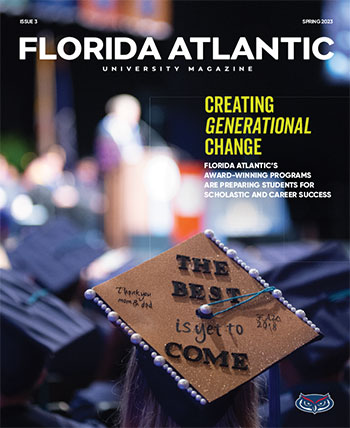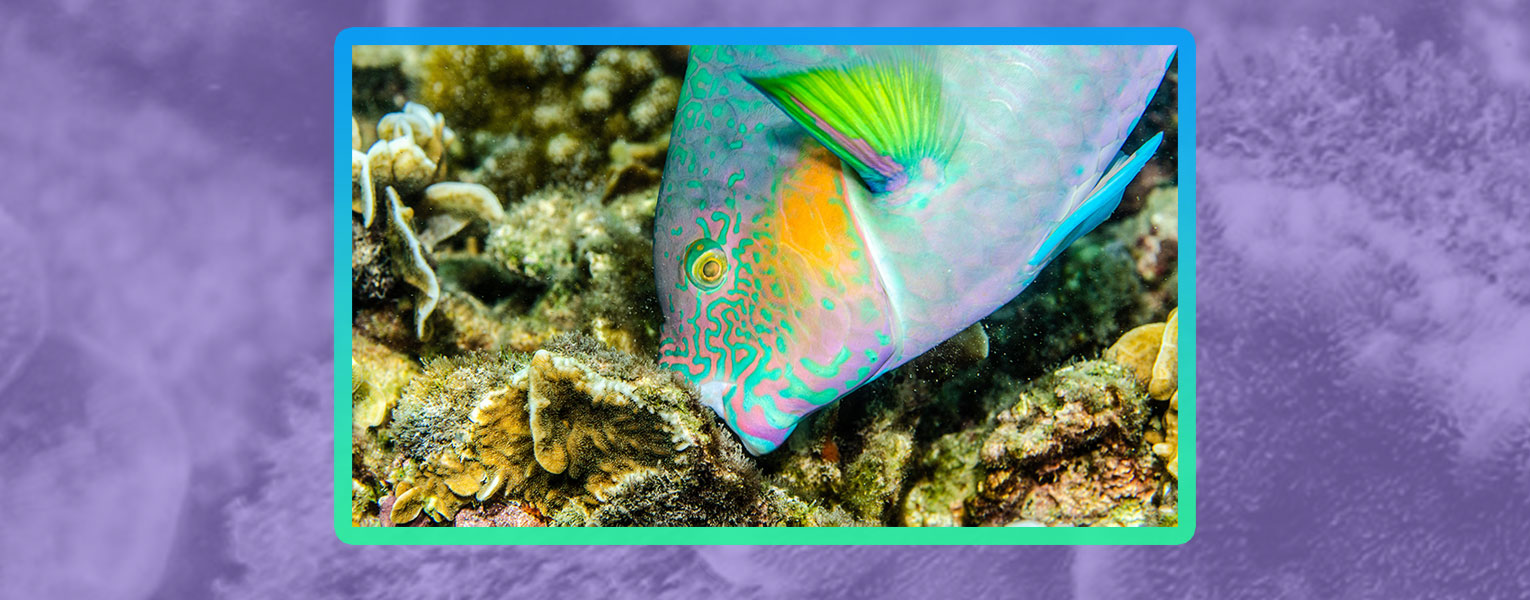8/24/2023
Florida Atlantic: Coral Connection
FAU Researchers Working to Save Reefs
More than half a billion people depend on the fisheries, storm surge protection, ecotourism and other resources provided by tropical coral reefs. Although these communities care deeply about the fate of the reefs, they often lack the scientific tools to document changes in them — until now.
Florida Atlantic researchers are part of a team that received a five-year, $3 million grant from the National Science Foundation for a project to empower community members already interested in coral reef health with the tools needed to document changes in the reefs. Findings will help to inform management of these ecosystems. Among the prevailing theories for the global decline of the reefs is that the loss of herbivorous fishes through environmental change causes algae to outcompete corals, leading to the collapse of previously thriving coral ecosystems.
However, how herbivory emerges in these ecosystems is poorly understood, said Ashkaan K. Fahimipour, Ph.D., co-principal investigator and assistant professor in the Department of Biological Sciences in FAU’s Charles E. Schmidt College of Science. Ultimately, he said, it depends on many different types of interactions occurring between fish that are simultaneously competitors and mutualists.
To help measure the interactions and impacts, researchers will work with local stakeholders, such as fishing cooperatives, grassroots conservation groups and tour operators, to identify the metrics of reef health that are most relevant to them, and will provide them with small, handheld camera observatories so that they can contribute to the monitoring effort. Results will help researchers understand how herbivory rate at the ecosystem scale emerges, responds to environmental change and shapes the ecosystem.
If you would like more information, please contact us at dorcommunications@fau.edu.

